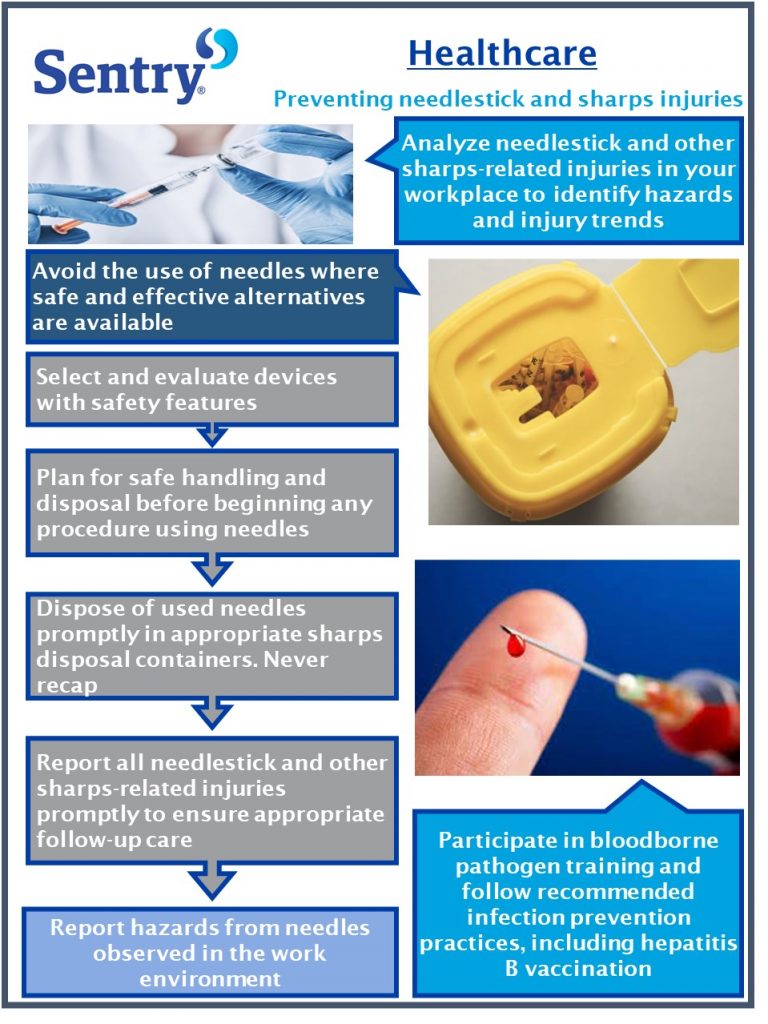Protecting Healthcare Workers: A 2025 Guide to Needlestick Safety
Every day, healthcare professionals put their safety on the line to care for others. One of the most common and potentially serious risks on the job is a needlestick injury. These incidents may seem minor in the moment, but they can carry life-changing consequences. From exposure to bloodborne pathogens like HIV and hepatitis B or C, to the stress and uncertainty that follows, a single mistake can leave a lasting impact.
Whether you work in a hospital, clinic, long-term care facility, or correctional setting, it’s essential to stay informed, take the right precautions, and know how to respond if an injury occurs. This guide is designed to support you with clear, up-to-date safety practices that help prevent needlestick injuries in the field.
According to OSHA, about 5.6 million workers in healthcare and related occupations are at risk of occupational exposure to bloodborne pathogens. Each year, an estimated 385,000 needlestick and sharps-related injuries occur in hospitals across the United States alone.

What to Do If You’re Injured
If you experience a needlestick injury:
- Wash the area thoroughly with soap and water.
- Flush splashes to the nose, mouth, or eyes with water or saline.
- Report the incident immediately to your supervisor or manager.
- Seek medical evaluation as soon as possible.
How to Prevent Them
Prevention starts with awareness and proper training. Some best practices include:
- Using sharps with engineered safety features, such as retractable needles.
- Disposing of all sharps immediately in designated puncture-resistant containers.
- Never recap used needles.
- Follow your facility’s exposure control plan.
- Staying up to date on safety protocols and in-service training.
It is vitally important to report an exposure immediately; if the HCP was exposed to HIV, post-exposure prophylaxis should be initiated within hours after the exposure.
Report to your supervisor at the facility and seek treatment there, if possible. Also, report to your recruiter. The recruiter will initiate a Workers' Comp claim with the appropriate manager and Accountable Healthcare Human Resources.
The National Clinical Consultation Center provides telephone consultations by physicians and other healthcare professionals for occupational and non-occupational exposures to bloodborne pathogens. The service is available from 9 a.m. to 8 p.m. Eastern time, Monday through Friday, and 11 a.m. to 8 p.m., Saturday, Sunday, and holidays. The Center's website has detailed instructions for treating exposure to a bloodborne pathogen if the exposure happens outside of its operating hours. 1-888-448-4911.
National Clinician Consultation Center (nccc.ucsf.edu)
Sources & Further Reading